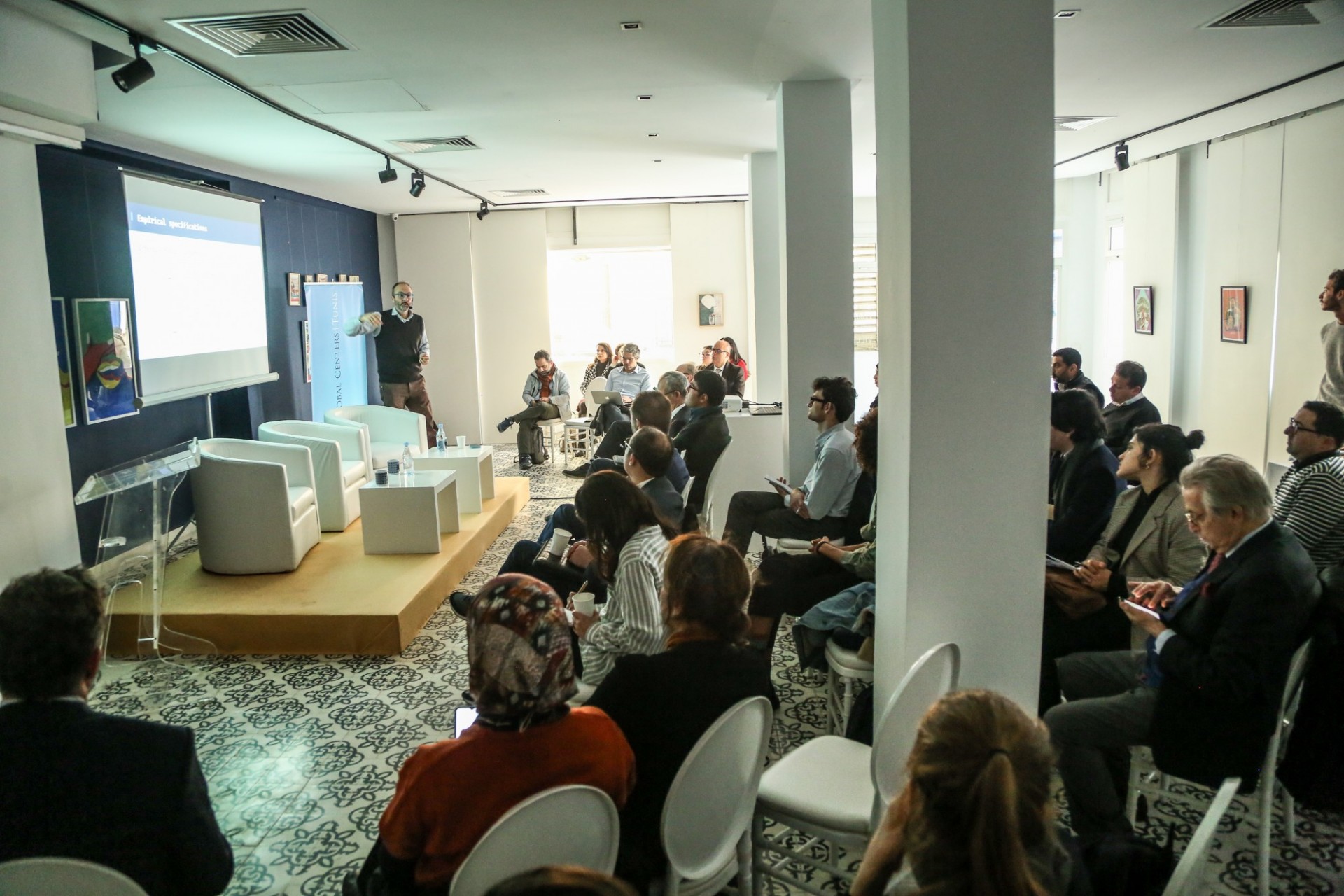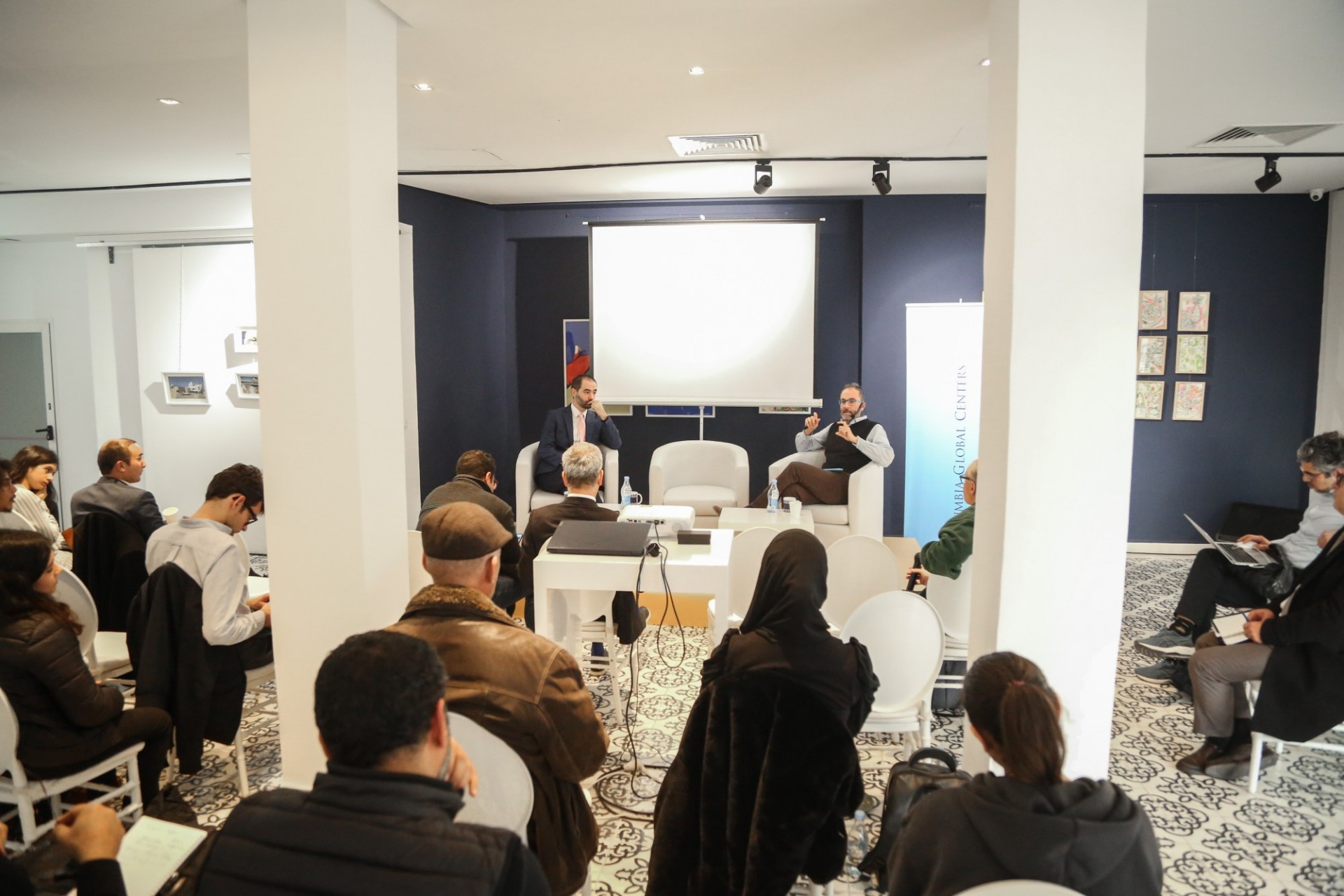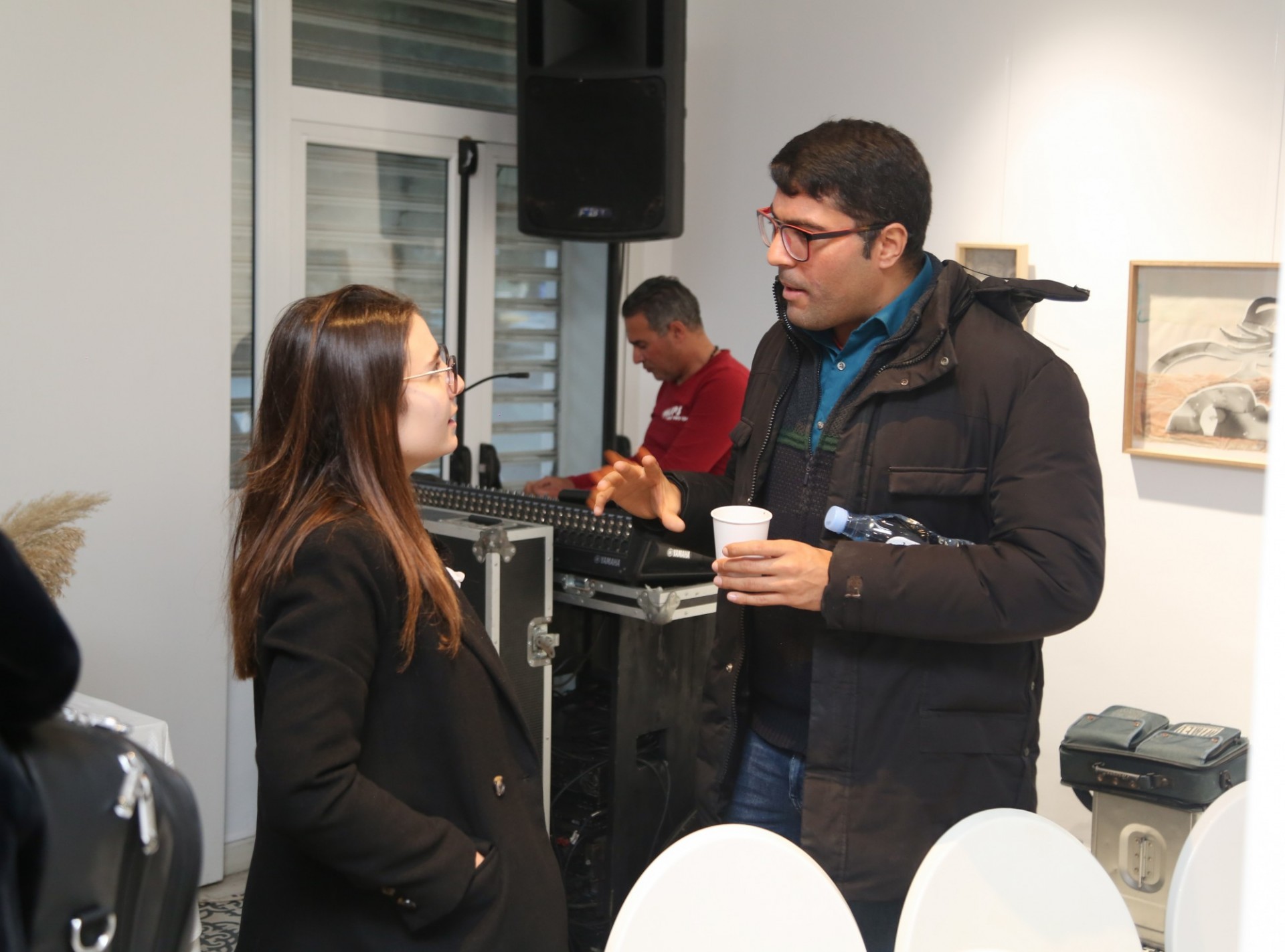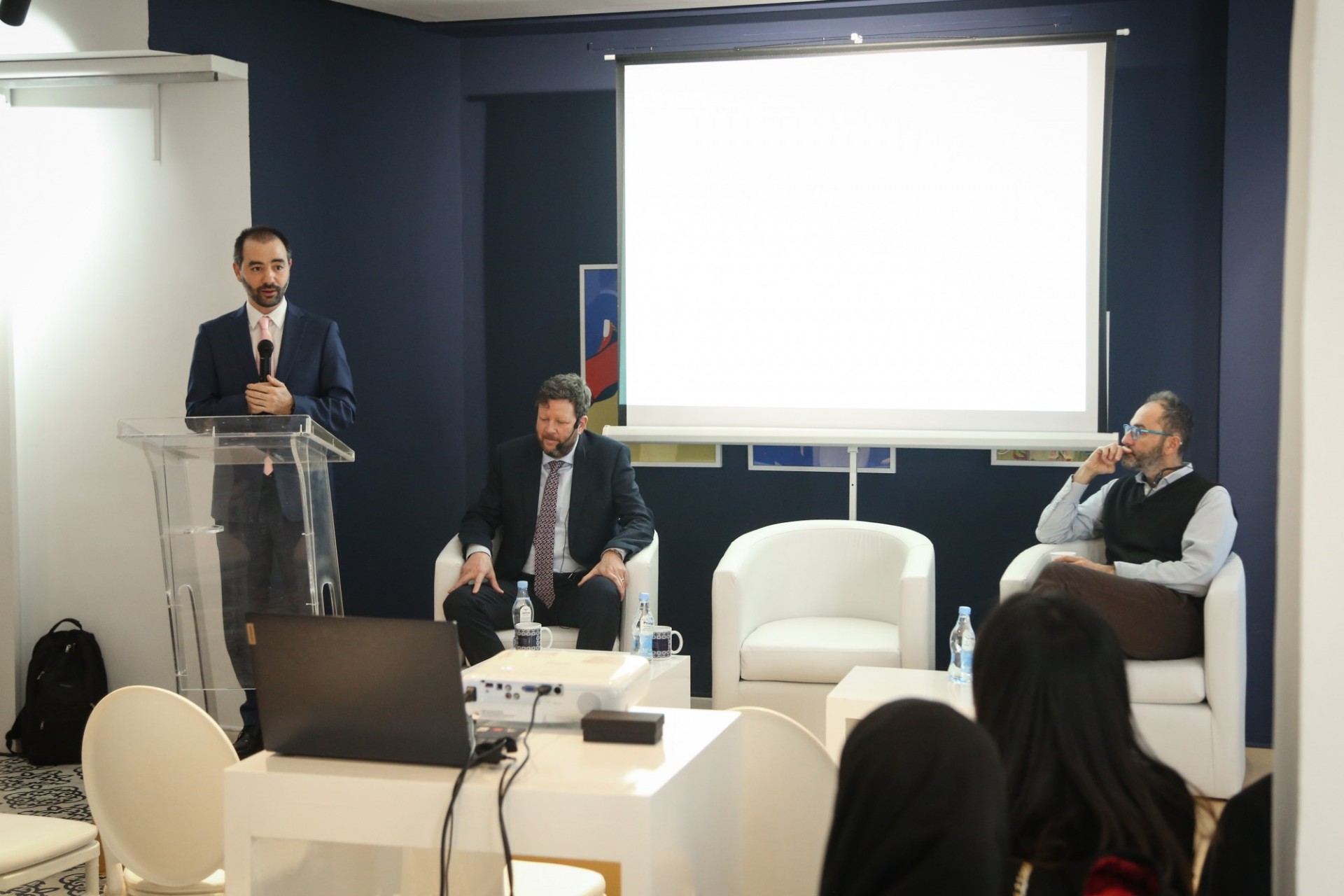Export Subsidies, Tax Incentives, and Firm Performance in Tunisia: Experimental and Quasi-experimental Evidence

On January 23rd, Columbia Global Centers | Tunis hosted a seminar to share the results of a Columbia University President's Global Innovation Fund project (PGIF), “Evaluating an Export Promotion Scheme in Tunisia”. The event featured presentations by Pr. Eric Verhoogen, Professor of Economics and International and Public Affairs at Columbia University, and Dr. Massimiliano Calì, Senior Country Economist for the World Bank in Tunisia. The gathering brought together experts and researchers to examine the details of export subsidies, tax incentives, and their effects on the economic environment in Tunisia.
Pr. Eric Verhoogen, member of CGC Tunis’ Faculty Advisory Committee, and the principal investigator of this PGIF, presented the conclusive findings of the study, which is the first paper to conduct a randomized evaluation of a government intervention targeting exports.
While evidence supports the positive impacts of exporting in developing countries and emphasizes the importance of increasing the scale and diversity of exports for policymakers in many developing nations, the effectiveness of government interventions in achieving this goal remains unclear. Addressing this uncertainty, the study focused on evaluating TASDIR+, a $22 million export matching grant scheme implemented by the Tunisian government. The goals of this program, along with general export promotion, are to diversify markets, focusing on non-traditional markets such as the Maghreb, Eastern Europe, etc., and diversify exports to include new goods and services with high value-added and technological content.
Working closely with the Tunisian government's export-promotion agency (CEPEX), this study employed a randomized controlled trial to evaluate TASDIR+’s traditional matching grant scheme and a newly implemented rebate scheme.
Under the traditional matching grant scheme, eligible firms receive a 50% cost subsidy for export-related expenses. Under the rebate scheme, available to agriculture / agribusiness / trading firms, eligible firms receive the 50% cost subsidy and a pay-for-performance rebate based on the firm’s export performance in new markets.
By revealing the outcomes of government interventions in export promotion, this research addresses key uncertainties faced by policymakers and contributes to the ongoing discussions surrounding effective export strategies in developing nations.
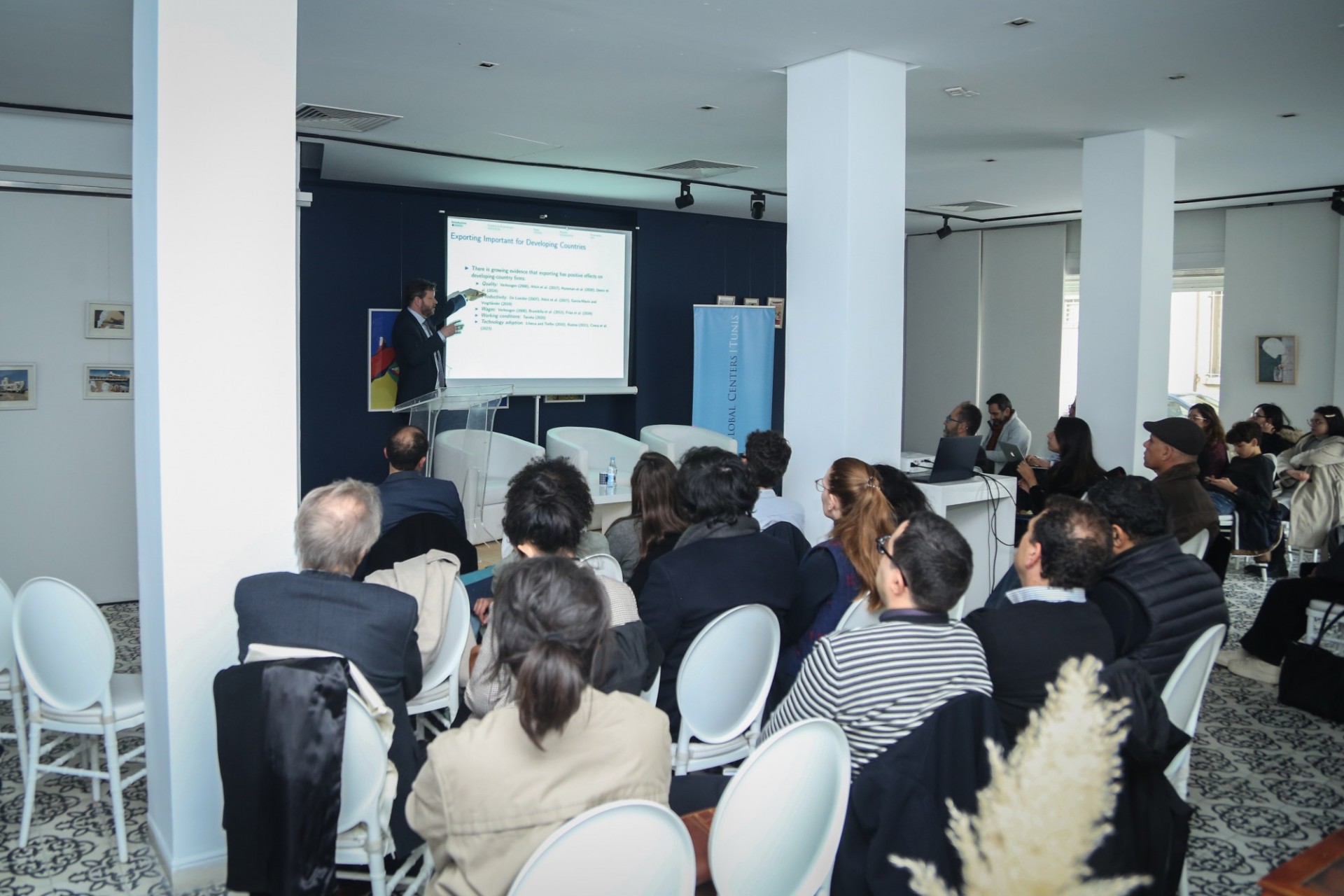
Dr. Massimiliano Calì, Senior Country Economist for the World Bank in Tunisia, presented the implications of Tunisia's 2014 corporate income tax (CIT) reforms, which eliminated the long-standing CIT exemption for export-oriented firms while concurrently reducing the general rate for other businesses.
Dr. Calì's analysis explored the effects on entry and exit dynamics at the sectoral level, assessing the short- and medium-term impact of this policy change on existing firms' revenues, employment, and exports. Preliminary results suggested a significant reduction in firm entry without discernible impacts on overall employment, revenues, profits, and trade. The presentation offered a nuanced understanding of the consequences of Tunisia's CIT reforms, shedding light on their impact on firm behavior and economic outcomes.
